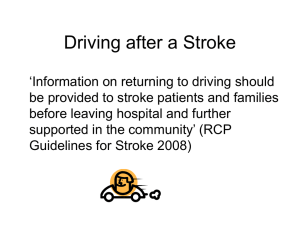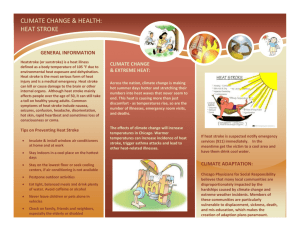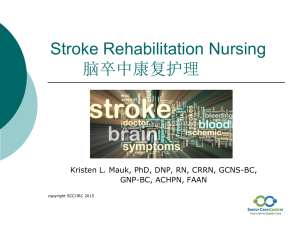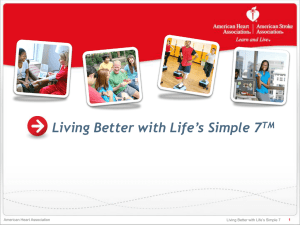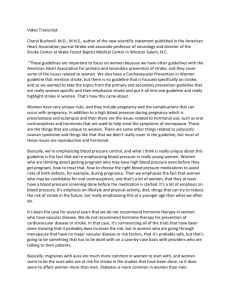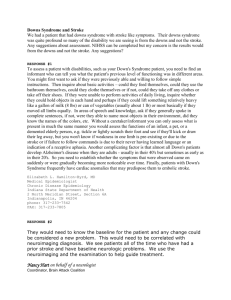Stroke Initiative February 2015 Newsletter
advertisement
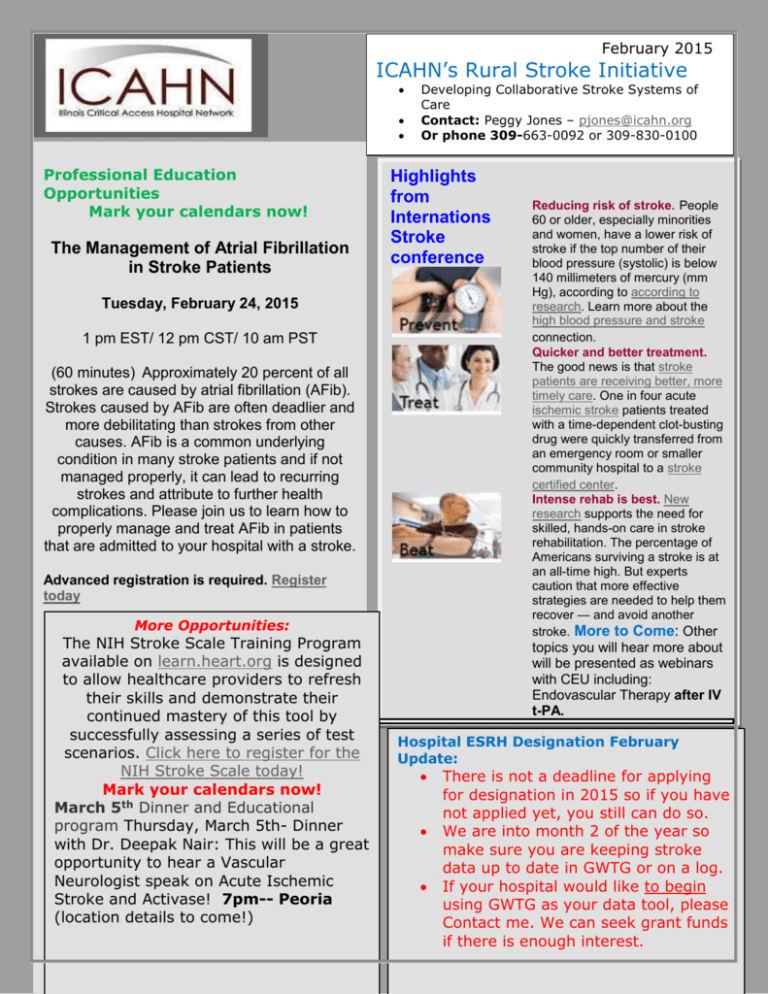
February 2015 ICAHN’s Rural Stroke Initiative Professional Education Opportunities Mark your calendars now! The Management of Atrial Fibrillation in Stroke Patients Developing Collaborative Stroke Systems of Care Contact: Peggy Jones – pjones@icahn.org Or phone 309-663-0092 or 309-830-0100 Highlights from Internations Stroke conference Tuesday, February 24, 2015 1 pm EST/ 12 pm CST/ 10 am PST (60 minutes) Approximately 20 percent of all strokes are caused by atrial fibrillation (AFib). Strokes caused by AFib are often deadlier and more debilitating than strokes from other causes. AFib is a common underlying condition in many stroke patients and if not managed properly, it can lead to recurring strokes and attribute to further health complications. Please join us to learn how to properly manage and treat AFib in patients that are admitted to your hospital with a stroke. Advanced registration is required. Register today More Opportunities: The NIH Stroke Scale Training Program available on learn.heart.org is designed to allow healthcare providers to refresh their and demonstrate March 5th skills Dinner and Educationaltheir continued mastery this tool by program Thursday, March of 5th- Dinner with aaseries Attention GWTG Dr. successfully Deepak Nair: assessing This will beUsers great of test scenarios. to register for the opportunity to Click hear ahere Vascular Neurologist NIH Stroke Scale today! speak on Acute Ischemic Stroke and your calendars Activase!Mark 7pm-Peoria (locationnow! details to th come!) March 5 Dinner and Educational program Thursday, March 5th- Dinner with Dr. Deepak Nair: This will be a great opportunity to hear a Vascular Neurologist speak on Acute Ischemic Stroke and Activase! 7pm-- Peoria (location details to come!) Reducing risk of stroke. People 60 or older, especially minorities and women, have a lower risk of stroke if the top number of their blood pressure (systolic) is below 140 millimeters of mercury (mm Hg), according to according to research. Learn more about the high blood pressure and stroke connection. Quicker and better treatment. The good news is that stroke patients are receiving better, more timely care. One in four acute ischemic stroke patients treated with a time-dependent clot-busting drug were quickly transferred from an emergency room or smaller community hospital to a stroke certified center. Intense rehab is best. New research supports the need for skilled, hands-on care in stroke rehabilitation. The percentage of Americans surviving a stroke is at an all-time high. But experts caution that more effective strategies are needed to help them recover — and avoid another stroke. More to Come: Other topics you will hear more about will be presented as webinars with CEU including: Endovascular Therapy after IV t-PA. Community Hospital ESRH DesignationEducation February Update: There is not a deadline for applying for designation in 2015 so if you have not applied yet, you still can do so. We are into month 2 of the year so make sure you are keeping stroke data up to date in GWTG or on a log. If your hospital would like to begin using GWTG as your data tool, please Contact me. We can seek grant funds if there is enough interest. NEW Atrial Fibrillation Spotlight Series Talk is Now Available February 2015 page 2 Anticoagulation is an important consideration in the management of atrial fibrillation. The goal of this accredited education program will be to provide healthcare professionals with very specific guidance related to what is known and what is not known about novel anticoagulants; identifying the most appropriate patients for their use, discerning their role in patients with non-valvular AF, and preventing stroke and the growing medical care costs associated with atrial fibrillation and stroke. Spotlight Series Features: Live, hour-long presentations delivered during grand rounds at your institution AHA-approved and trained experts in the field of cardiovascular health CME/CE accreditation provided by the American Heart Association through ACCME, ANCC and ACPE It’s free! There is no cost for your institution Available Nationwide – Request this free CME/CE presentation at your institution today! By incorporating a Spotlight Series presentation into your institution’s educational programming we can build healthier lives, free of cardiovascular disease and stroke. Register today to join Get With The Guidelines-AFIB on February 24 at noon C.T. for a live webinar about managing AFib in stroke patients. Non-valvular Atrial Fibrillation: 2014 Guidelines & Evidence-Based Practice Based on the new 2014 AHA/ACC Atrial Fibrillation Guidelines, this program is the first online CME activity to provide a comprehensive education on the new scientific outcomes that were presented in March 2014. This course is available to all healthcare professionals, and will provide CME credit for physicians, nurses, And pharmacists at learn.heart.org. This enduring activity discusses the treatments specific to the AHA/ACC Guidelines to provide evidence-based care to patients, the methods of preventing stroke in patients with atrial fibrillation, and provides a review of patient education recommendations. For more information about this program or to register, visit the Professional Education Center website.
